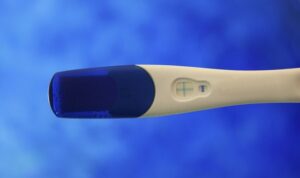 Couples going through infertility treatment may sometimes feel overwhelmed with having to go through a number of tests, particularly at the time of diagnosis. Given that some clinics do mislead unsuspecting patients and advise unnecessary tests, it is not unusual for a patient to be apprehensive about the necessity of all the tests recommended by their doctor.
Couples going through infertility treatment may sometimes feel overwhelmed with having to go through a number of tests, particularly at the time of diagnosis. Given that some clinics do mislead unsuspecting patients and advise unnecessary tests, it is not unusual for a patient to be apprehensive about the necessity of all the tests recommended by their doctor.
Diagnosing infertility can be a complex process. Once your fertility doctor has learned your in-depth medical history, the next step is to prescribe diagnostic tests to determine the root cause of infertility.
At Gaudium Fertility Clinic, we encourage our patients to ask questions and discuss every concern they might have regarding the diagnosis and treatment process. Having dealt with thousands of patients from all walks of life, our experts believe that the best way to calm patients’ anxiety is by maintaining transparency and by providing patients with information which makes them feel informed and in control.
As a general protocol, for most infertility patients the less invasive and less expensive tests are recommended first, and not every patient needs to undergo extensive testing. A credible fertility specialist would not recommend lab tests without an in-depth evaluation of your condition. If your doctor appears eager to prescribe tests or medication in the very first meeting without obtaining your detailed medical, sexual and reproductive history, it is not a good sign.
To give you a fair idea of what to expect, shared below is a list of tests your doctor may suggest during infertility assessment.
Infertility Diagnosis and Testing for Women
Expect your doctor to ask questions regarding your menstrual cycle, history of past pregnancies, sexual health, past illness, surgery, medication etc. This would be followed by further testing to ascertain the cause of infertility:
Stage I
- Physical examination including pelvic examination to rule out genital infections
- Ovulation test to check any problems with the monthly egg release (ovulation)
- Blood tests to check estrogen and testosterone levels
- Ultrasound to check for ovarian cysts and fibroids
- Blood tests for thyroid, hepatitis, HIV and any chronic illness
- FSH level test to detect blood levels of the follicle stimulating hormone secreted by the pituitary gland. This hormone regulates the production of estrogen and progesterone, and is responsible for the growth of eggs in the ovaries. The test is carried out on the third day of your period.
Based on the results of preliminary testing, your fertility doctor may recommend one or more of the following tests to confirm the diagnosis made so far.
Stage II
- Laparoscopy: Helps detect endometriosis, a condition where the tissue lining the uterus develops outside the uterus causing heavy periods and problems with fertility.
- HSG (Hysterosalpingogram): X-ray to check uterine health and detect any blockage in the fallopian tubes.
- Hysteroscopy: Conducted if the HSG indicates abnormalities in the uterus or fallopian tubes. Allows your doctor to take photos of the damaged areas.
- Endometrial biopsy: A small amount of tissue is taken from the uterine lining (endometrium) to detect abnormalities which could affect implantation of a fertilized egg.
The collective results of the above tests would help your doctor determine the line of treatment best suited for you.
Infertility Diagnosis and Testing for Men
Stage I
- Initial assessment through detailed medicaland reproductive history
- Physical examination to detect genital abnormalities and infections
- Complete Semen Analysis to detect problems with sperm count (number of live sperm cells per milliliter of semen), sperm movement (motility) or abnormalities in sperm shape (morphology)
If the results of semen analysis are normal, your doctor may order more tests for the female partner. If, how ever, the semen analysis report indicates problems with semen production and/or quality, the male would be required to undergo further investigation.
Stage II
- Blood tests to check hormone levels (testosterone and other hormones which affect fertility)
- Scrotal ultrasound to detect blockage in the testicles and surrounding area which could be obstructing semen flow
- Transrectal Ultrasound to check prostate health and detect any blockage in the ejaculatory ducts
- Extensive sperm function tests which may be undertaken if, after unfavorable sperm analysis, your doctor needs to further investigate the behavior of your sperm post- ejaculation
- Testicular biopsy wherein a small sample of testicular tissue is removed and tested to check any problems with sperm production
In certain cases where the above testing fails to indicate the underlying cause of male infertility, genetic testing may be recommended to test for genetic disorders.
Unnecessary testing by some (mediocre)fertility clinics leads to mistrust and frustration in patients, and gives a bad name to the noble vocation of a fertility doctor. At Gaudium IVF Centre we believe it the patients’ right and the doctor’s duty to explain why a particular test or procedure may be indispensable to a particular treatment protocol.
If you have an unanswered question about your infertility diagnosis, feel free to consult Dr. Manika Khanna for a free second opinion
Email id.: info@gaudiumivfcentre.com or Contact No. : 01148858585 and Visit Our IVF Centre.



